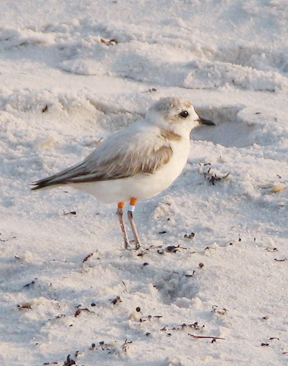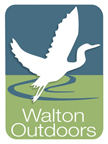
Be watchful and respectful of all nesting wildlife, it’s a matter of survival
While we all enjoy the beautiful beaches of Northwest Florida, it is important to remember that we share the beach with nesting shorebirds. While you are at the beach, please remember to be respectful of wildlife. Their survival depends on you!
Frequent disturbances of birds on the beach, especially disturbances that cause birds to take flight, may threaten their survival.
Many species of Florida’s water birds, including gulls, terns, skimmers, plovers, willets and oystercatchers, nest on the beach. When these beach-nesting birds are disturbed and flushed off their nests by people or dogs, eggs and chicks in the nests are exposed to temperature extremes and predators like crows, raccoons and dogs.
Several beach-nesting bird species are declining because of habitat loss and disruption of nesting activities. Beaches and islands that were once isolated are now teeming with boats, beach goers and their pets. It is easy for unknowing beach goers to crush the eggs or kill young chicks accidentally. Eggs and chicks of beach-nesting birds blend in with their surroundings and are nearly invisible on the ground.
What can you do to help?
• Keep your distance. If birds appear agitated or take flight, you are too close! Some birds (such as terns and skimmers) require a 600-foot comfort zone during the breeding season, while other species are more tolerant of disturbances. A general rule is to stay at least 300 feet (the length of a football field) away from groups of shorebirds. Observe birds from a distance using binoculars to get a closer look.
• Keep out of posted areas. During the spring and summer nesting season, signs may be posted in areas that are important for beach-nesting birds. Avoid posted areas and encourage others to do the same.
• Never intentionally force birds to fly. If you see birds on a beach, island or sandbar, walk or steer around the birds to avoid disturbing them.
• Avoid running your watercraft close to shore. Many mangrove islands, beaches, mud flats and other shallow water and shoreline habitats can be important feeding, resting and nesting areas for birds. Loud noises and vessel wakes can disturb birds.
• Keep dogs leashed. An unleashed dog can destroy a colony of beach-nesting birds in minutes. Keep dogs away from all bird colonies and beach-nesting birds.
• Spread the word. Many people do not realize their actions may be harmful to wildlife. If you see people intentionally disturbing a bird colony, let them know how their actions may threaten survival of birds.
Protecting the young
Adult beach-nesting birds are protective of their eggs and young. When you disturb a nesting area, worried adult birds see you as a danger and try to keep you away from their eggs and chicks. Sometimes an adult bird will pretend to have a broken wing to lure you and dangerous predators away from their young. Adult birds also may attempt to drive you away by calling out in protest, dive-bombing and even defecating on you!
If any of these things happen, you are too close to the birds! Please calmly and quietly leave the area.
This information courtesy Florida Fish and Wildlife Conservations Commission with a grant from the Wildlife Foundation of Florida. For more information, go to MyFWC.com
Wildlife Alert hotline: 1-888-404-3922
To learn more about Camp Helen State Park, click here.
